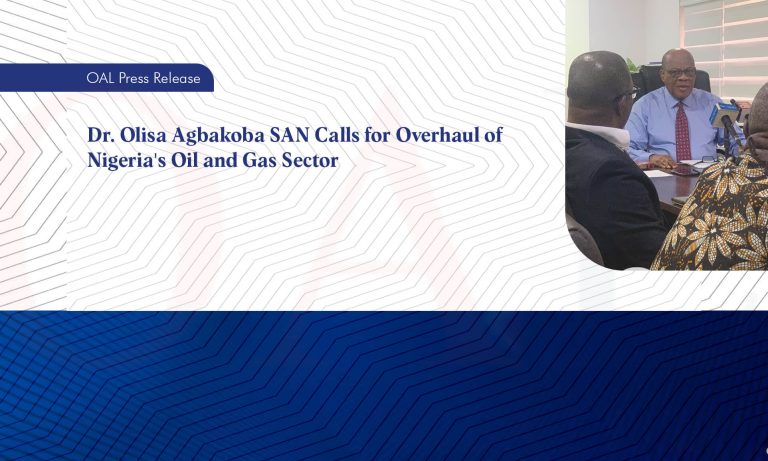
Cryptocurrency Regulation in Nigeria: Addressing the Regulatory Challenges of Cryptocurrency in Nigeria.

There are a number of criticisms leveled at cryptocurrencies in Nigeria, the most common is the link to criminal activities associated with its use. Unfortunately for law enforcement agencies, cryptocurrencies are built on the idea of decentralization, which means that they are intentionally designed in a way that prevents them from being controlled by a central authority. While banks and other financial institutions are banned in Nigeria from trading in cryptocurrencies, cryptocurrency is not illegal, but it is unregulated.
The cryptocurrency regulatory challenge may be ascribed to a lack of understanding of how cryptocurrency actually works and how criminals are beginning to use it. It is therefore critical to raise awareness among law enforcement agencies and then create tools that can aid them in regulating cryptocurrency in Nigeria.
The Central Bank of Nigeria (CBN) has recently sent a letter to banks and other financial institutions in February 2021, stating that trading in cryptocurrencies and enabling payment for cryptocurrency exchanges are banned. The CBN also directed all banks and other financial institutions to identify and cancel the accounts of individuals or businesses that deal in cryptocurrencies or run cryptocurrency exchanges. The CBN claimed that cryptocurrencies are created by unregulated and unregistered companies, and hence usage in Nigeria violates existing laws since they are not legal tender. CBN also noted that cryptocurrency anonymity is a huge problem. CBN states that the anonymity and absence of KYC makes cryptocurrency vulnerable to illicit usage, such as money laundering and terrorism funding. Another reason is the volatility of cryptocurrencies, which CBN claims jeopardizes the stability of financial systems of other countries.
Despite the Nigerian government’s prohibition of cryptocurrency, cryptocurrency use is widespread in Nigeria and the prohibition has little effect. Rather, the Nigerian crypto-community has resorted to peer-to-peer trading, or exchanging money directly with one another. Nigeria has traded 60,215 bitcoins worth more than $566 million in the last five years, making it the highest volume on Paxful, the world’s largest peer-to-peer bitcoin marketplace, in the United States. According to Coin-Dance statistics 2020, bitcoin trade in Nigeria rose by at least 19 percent every year with the greatest volume (20,504.50) exchanged in 2020 at the height of the pandemic. Paxful recorded a 137 percent rise in new registrations in Nigeria between January and September, 2020.
Nigeria is currently the number one country in the world in terms of people searching for “Bitcoin” and “Crypto” keywords on Google, with over 6.3 percent of the entire population owning at least one type of cryptocurrency. In the Chainalysis 2021 Global Crypto Adoption Index, Nigeria is ranked sixth out of the top 20 countries in terms of cryptocurrency adoption. A few important variables, according to Chainalysis, are driving increased adoption in Nigeria, Kenya, and other emerging countries. It is stated that Nigerians utilize the peer-to-peer cryptocurrency exchanges as their major gateway into cryptocurrencies, due to a lack of access to centralized exchanges. And that Nigerians also use cryptocurrencies to protect their funds against currency depreciation, send and receive remittances, and conduct commercial transactions. Meanwhile, the dollar volume of cryptocurrency received by Nigerian users has been steadily increasing in 2020 and 2021, which might be connected to this year’s bull stock market. While such regional data is subject to limitations, it is apparent that cryptocurrency is alive and well in Nigeria.
Due to internal security concerns and its appeal on the black market, Cryptocurrency has been associated with crimes in Nigeria. The service’s near-anonymity, uncertain legal status, and global reach, makes it an apparent and appealing option for money launderers and criminals alike. Due to their anonymous nature, cryptocurrencies have been linked to a variety of crimes, including assassinations, business attacks, child exploitation (including pornography), corporate espionage, counterfeit currencies, drugs, fake IDs and passports, high yield investment schemes (Ponzi schemes and other financial frauds), sexual exploitation, stolen credit cards and credit card numbers, and weapons.
Many crimes involving cryptocurrency are not new, such as buying and selling illegal narcotics, but criminals are increasingly utilizing bitcoin’s characteristics to further and hide unlawful activities. Criminal actors may use Bitcoin to:
- participate in financial transactions related to criminal conduct, such as purchasing and selling narcotics or weapons on the dark web, leasing servers to perpetrate cybercrime, or soliciting donations to assist terrorist activity;
- participate in money laundering or conceal otherwise lawful activities from tax, reporting, or other legal obligations;
- or conduct crimes that directly affect the cryptocurrency marketplace, such as stealing bitcoin from exchanges by hacking or defrauding unwary investors with the promise of cryptocurrency.
In response to cybercrime, the usage of cryptocurrency has generated global concerns about consumer data protection. The “Cybercrimes (Prohibition and Prevention) Act, 2015” has a significant impact on cyber law in Nigeria. This Act creates a comprehensive legal, regulatory, and institutional framework in Nigeria to prohibit, prevent, detect, prosecute, and punish cybercrimes in Nigeria. Apart from the impact of the Cyber Crime Act 2015, the Securities and Exchange Commission’s (SEC) collaboration with the Central Bank of Nigeria (CBN) to regulate cryptocurrency trading is a commendable step toward establishing a legal framework for cryptocurrencies in Nigeria. Nigeria for now is yet to establish a legal framework or legislation for cryptocurrencies or crypto exchanges. It’s time for the government to take strong regulatory action.
I would advise that all users, from the commercial sector to regulators, governmental authorities, and individual cryptocurrency users, work together to ensure public safety and national security. As a consequence, the focus would be on developing a practical research and development plan to help law enforcement better identify and investigate illegal cryptocurrency activities. This could be accomplished by:
- Increasing public awareness of cryptocurrency and its associated crimes,
- Forming cross-jurisdictional collaborations among agencies,
- Providing more and advanced training to officers to better equip them to detect cryptocurrency- based crimes,
- and providing extensive knowledge of cryptocurrency and its mode of operation to special investigation units.
Due to cryptocurrency’s anonymity, many state and local law enforcement agencies are generally ignorant of its mode of operation and capacity to instigate crime in their jurisdictions.
Olisa Agbakoba Legal (OAL) has a qualified and experienced set of cybersecurity lawyers who can offer legal support and advisory services relating to cybersecurity and cybercrimes, including cryptocurrency-related attacks and fraudulent activities. You can always contact OAL’s Cyber Lawyers if you have any questions about data protection, cryptocurrencies, cybercrimes, or cyber laws in Nigeria.
Written By:
Josephine Uba
Lead Digital Strategist, OAL
Author



